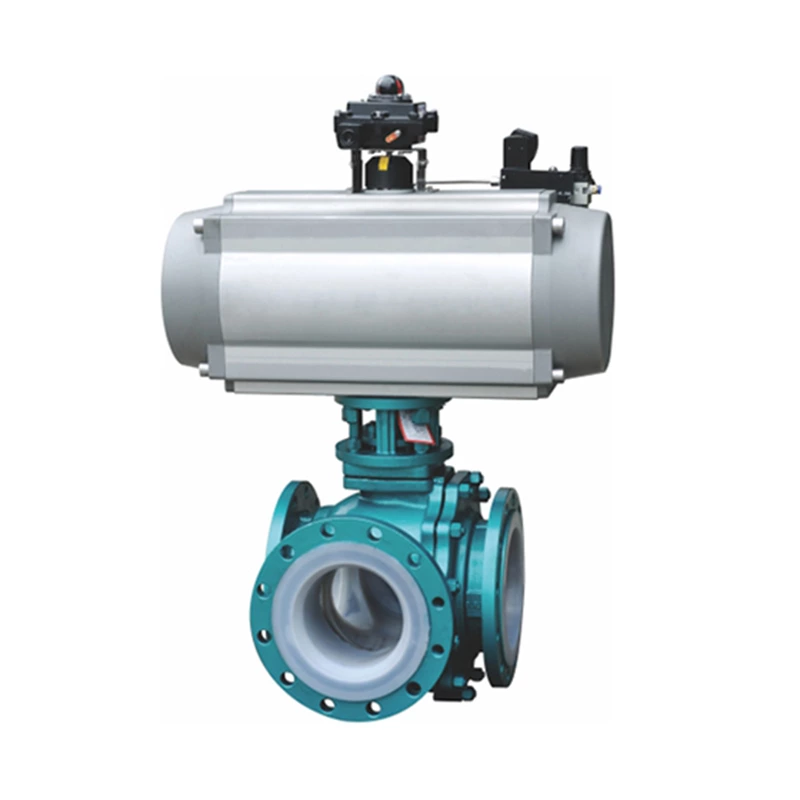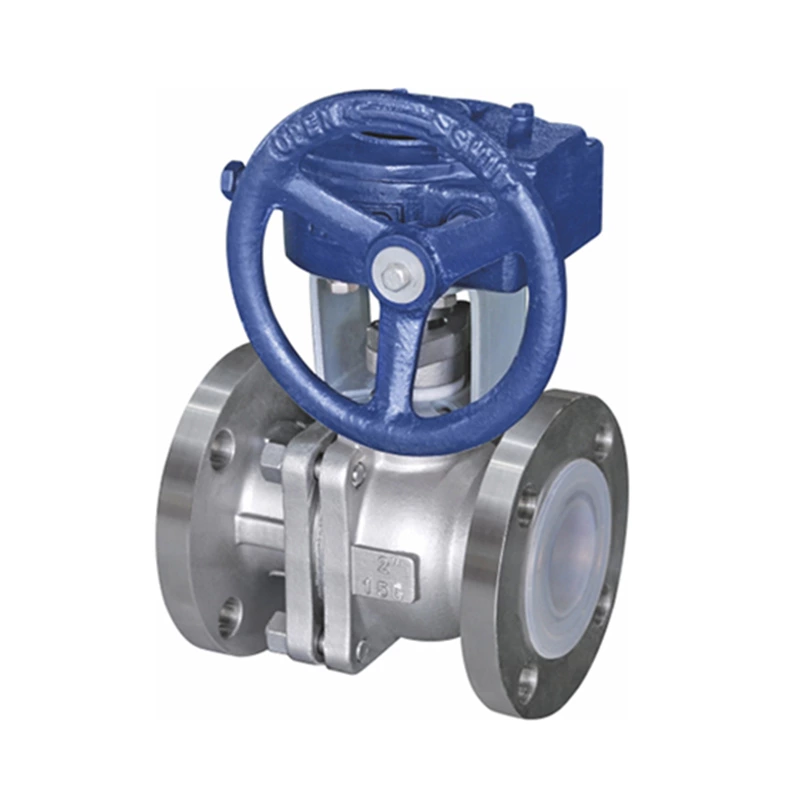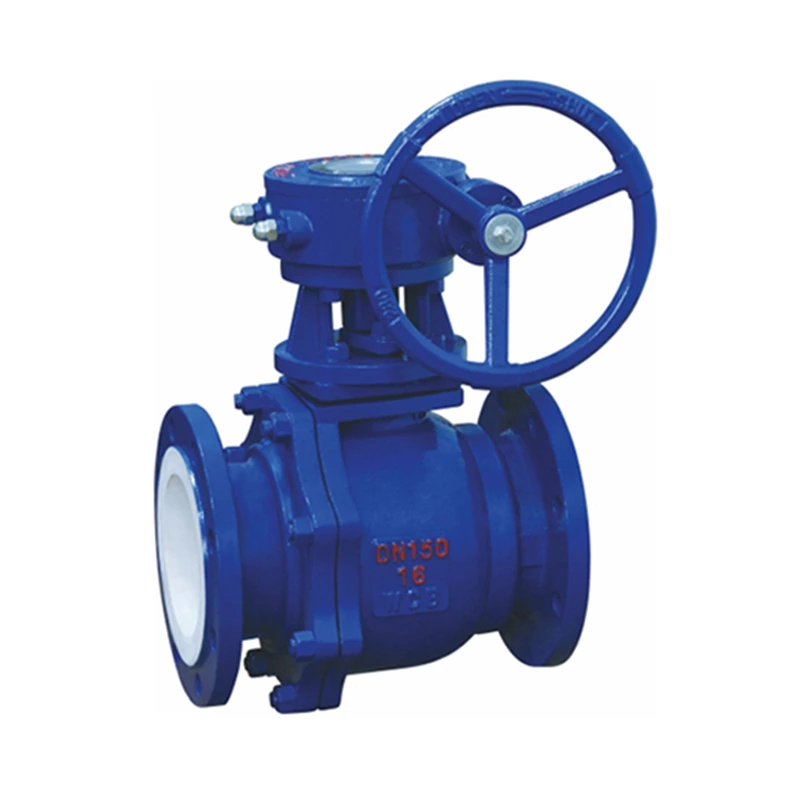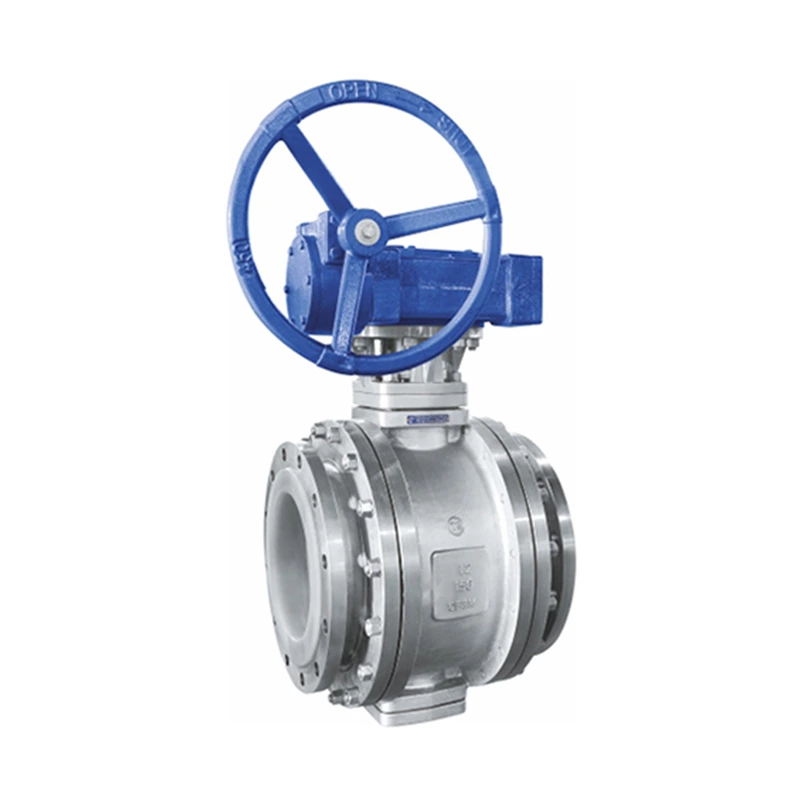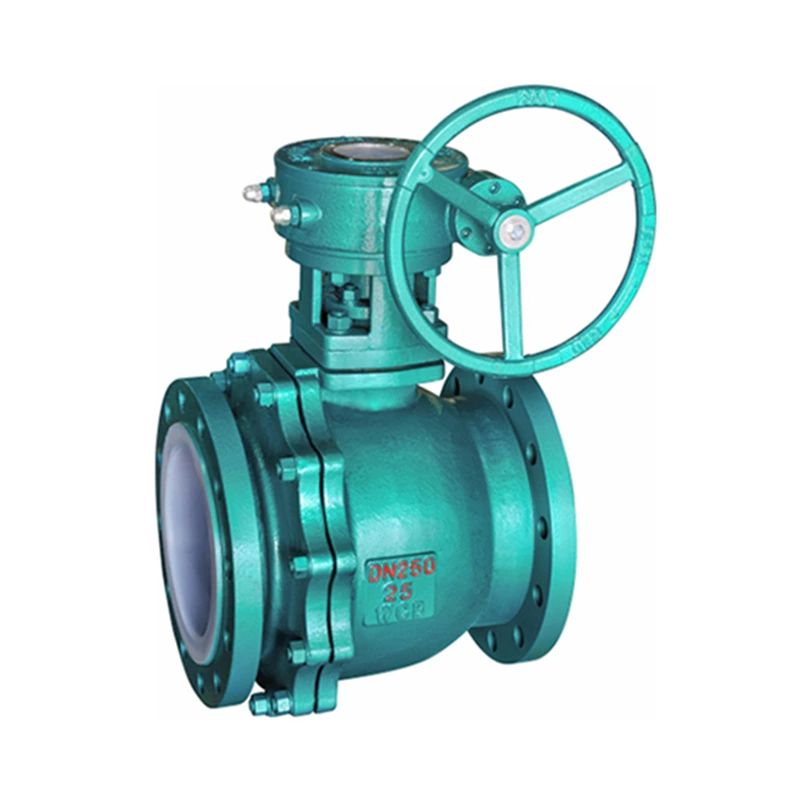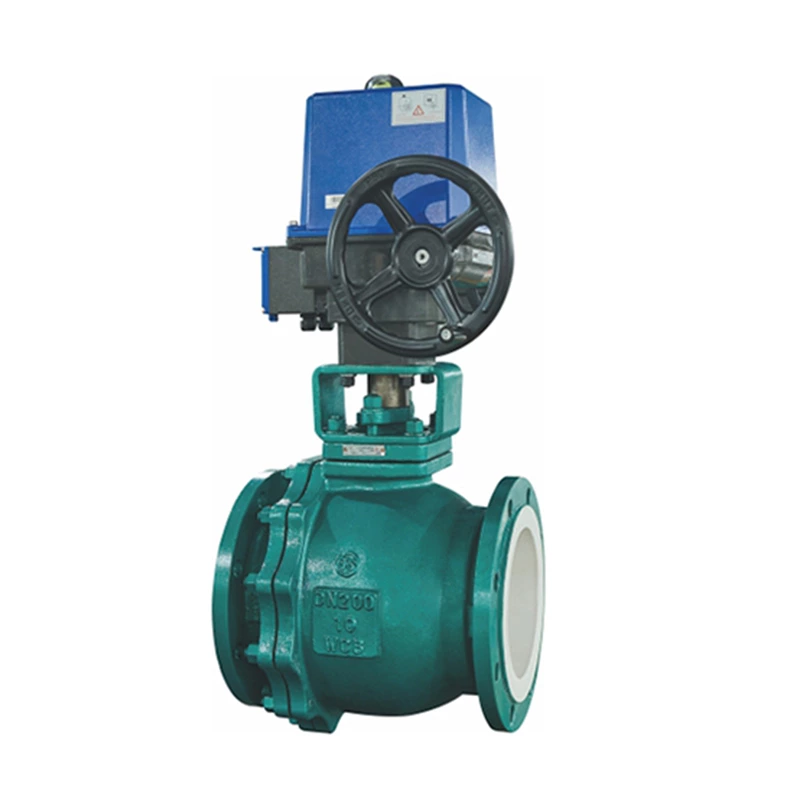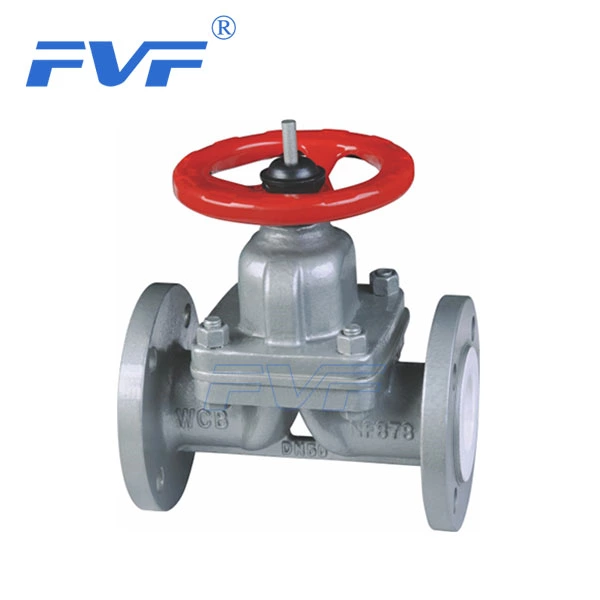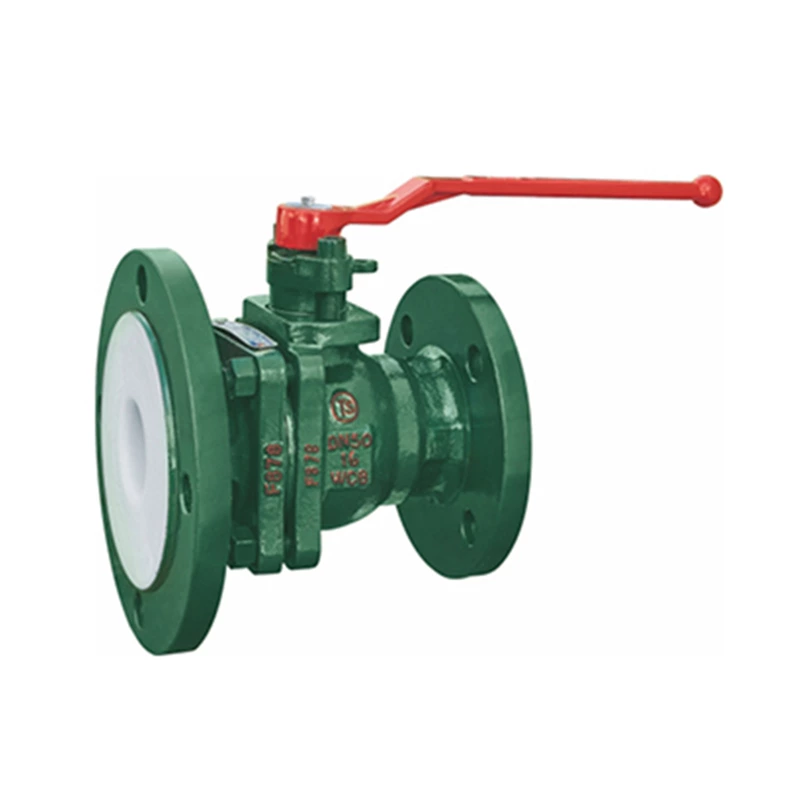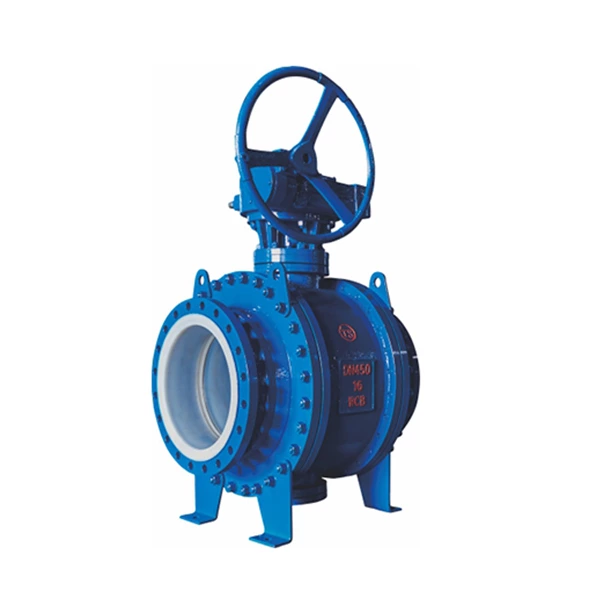Selection Of Chemical Valves For Corrosive Media Conditions
Selection of chemical Lined Valve valves under various corrosive media conditions
For valves under corrosive media conditions such as sulfuric acid, hydrochloric acid, nitric acid, alkali (sodium hydroxide), acetic acid, chlorine (liquid chlorine), ammonia (ammonia hydroxide), brine (seawater), alcohols, ketones, esters, ethers, etc., corrosion protection has become the key to valve selection
1. Sulfuric acid medium As one of the strong corrosive media, sulfuric acid is an important industrial raw material with a wide range of uses. Sulfuric acid of different concentrations and temperatures has a large difference in corrosion to materials. For concentrated sulfuric acid with a concentration of more than 80% and a temperature of less than 80°C, carbon steel and cast iron have good corrosion resistance, but it is not suitable for high-speed flowing sulfuric acid and is not suitable for use as valve materials; ordinary stainless steel such as 304 (0Cr18Ni9) and 316 (0Cr18Ni12Mo2Ti) are also limited in use for sulfuric acid media. Therefore, pumps and valves for conveying sulfuric acid are usually made of high-silicon cast iron (difficult to cast and process) and high-alloy stainless steel (No. 20 alloy valves). Fluoroplastics have good resistance to sulfuric acid, and the use of fluorine-lined valves (F46) is a more economical choice. If the pressure is too high and the temperature rises, the use of plastic valves will be impacted, and you can only choose ceramic ball valves that are much more expensive than them.
2. Most metal materials (including various stainless steel materials) are not resistant to hydrochloric acid corrosion, and molybdenum-containing high silicon iron can only be used for hydrochloric acid below 50℃ and 30%. In contrast to metal materials, most non-metallic materials have good corrosion resistance to hydrochloric acid, so lined rubber valves and plastic valves (such as polypropylene, fluoroplastics, etc.) are the best choices for conveying hydrochloric acid. However, if the temperature of such a medium exceeds 150℃, or the pressure is greater than PN16 kg, any plastic (including polypropylene, fluoroplastics and even polytetrafluoroethylene) will not be competent. There are no ideal valves on the market yet, but you can try the emerging ceramic ball valves. The advantages of this valve are self-lubrication, small torque, no aging, and much longer life than ordinary valves. Its disadvantage is that the price is much higher than that of plastic valves.
3. Nitric acid medium Most general metals are quickly corroded and destroyed in nitric acid. Stainless steel is the most widely used nitric acid-resistant material and has good corrosion resistance to nitric acid of all concentrations at room temperature. It is worth mentioning that the corrosion resistance of molybdenum-containing stainless steel (such as 316, 316L) to nitric acid is not only not better than that of ordinary stainless steel (such as 304, 321), but sometimes even worse. For high-temperature nitric acid, titanium ball valves and titanium alloy materials are usually used.
4. Alkali (sodium hydroxide) steel is widely used in sodium hydroxide solutions below 80°C and within 30% concentration. There are also many petrochemical companies that still use ordinary steel at 100°C and below 75%. Although corrosion increases, it is economical. Ordinary stainless steel has no obvious advantages over cast iron in corrosion resistance to alkali solution. As long as a small amount of iron is allowed to be added to the medium, stainless steel is not recommended. For high-temperature alkali solution, titanium gate valves and titanium alloys or high-alloy stainless steel are often used.
5. Acetic acid medium Acetic acid is one of the most corrosive substances among organic acids. Ordinary steel will be severely corroded in acetic acid of all concentrations and temperatures. Stainless steel is an excellent acetic acid resistant material. Molybdenum-containing 316 stainless steel can also be used for high temperature and dilute acetic acid vapor. For demanding requirements such as high temperature and high concentration acetic acid or other corrosive media, high alloy stainless steel or fluoroplastic pumps can be selected.
6. Chlorine (liquid chlorine) Most metal valves have limited resistance to chlorine corrosion, especially when chlorine is accompanied by water, including various alloy steel valves. In this case, PTFE-lined valves are a very good choice, but chemical plants producing chlorine and alkali will find that: when PTFE-lined valves are used for a little longer, the torque increases, and the aging problem of PTFE will become prominent. In this case, leakage is fatal. You can consider replacing the original ordinary PTFE-lined valve with a PTFE-lined ceramic ball core, which will have a perfect effect by utilizing the self-lubricating properties of ceramics and the corrosion resistance of PTFE.
7. Ammonia (ammonia hydroxide) Most metals and non-metals are slightly corroded in liquid ammonia and ammonia water (ammonia hydroxide), only copper and copper alloys are not suitable for use.
8. Salt water (seawater) Ordinary steel has a low corrosion rate in sodium chloride solution, seawater and salt water, and usually needs to be protected by coating; various types of stainless steel also have a very low uniform corrosion rate, but may cause local corrosion due to chloride ions, and 316 stainless steel is generally better.
9. Alcohols, ketones, esters, ethers Common alcohol media include methanol, ethanol, ethylene glycol, propanol, etc., ketone media include acetone, butanone, etc., ester media include various methyl esters, ethyl esters, etc., ether media include methyl ether, butyl ether, etc., they are basically non-corrosive, and commonly used materials can be used. When selecting, reasonable choices should be made according to the properties of the medium and related requirements. It is also worth noting that ketones, esters, and ethers are soluble in many types of rubber, so avoid mistakes when selecting sealing materials.
